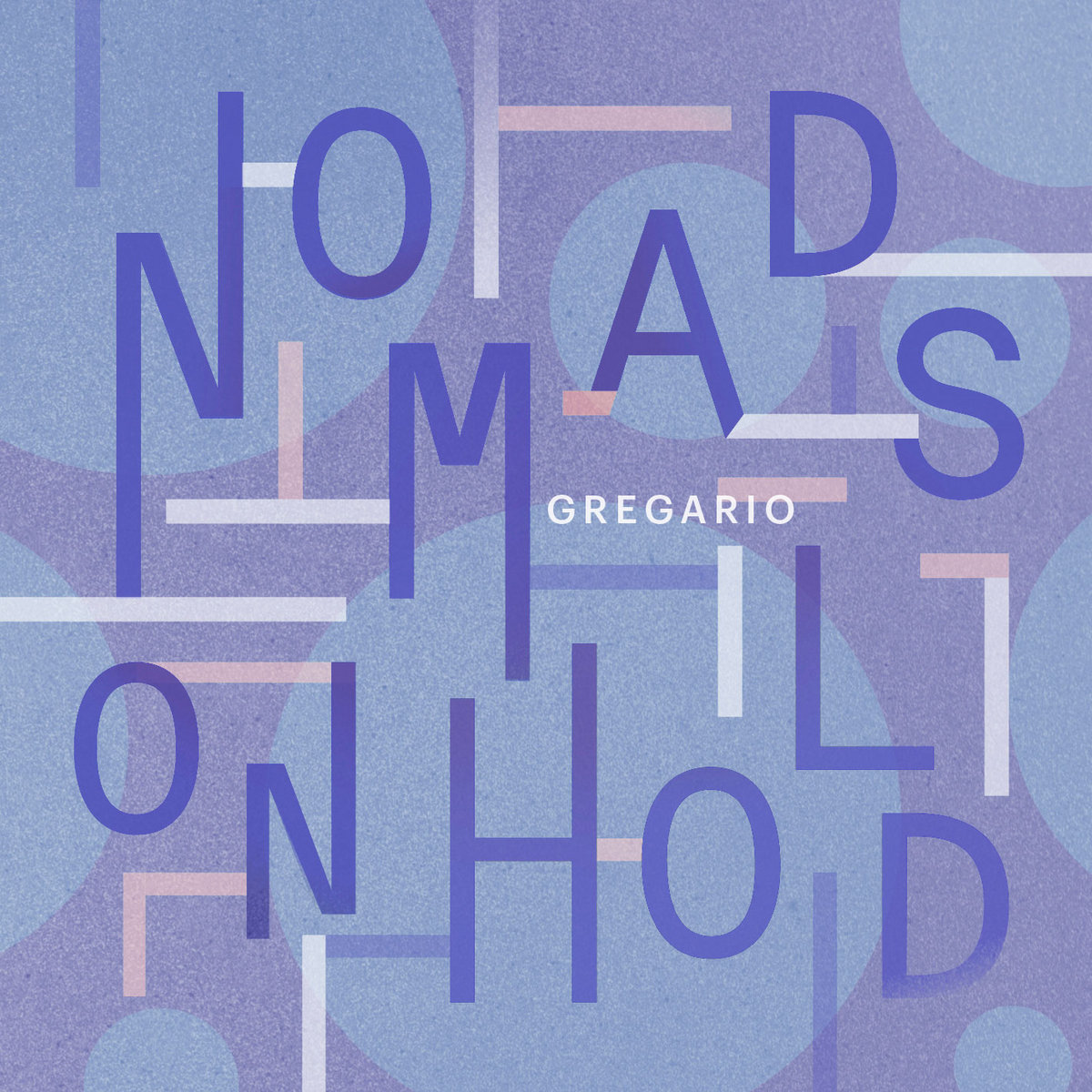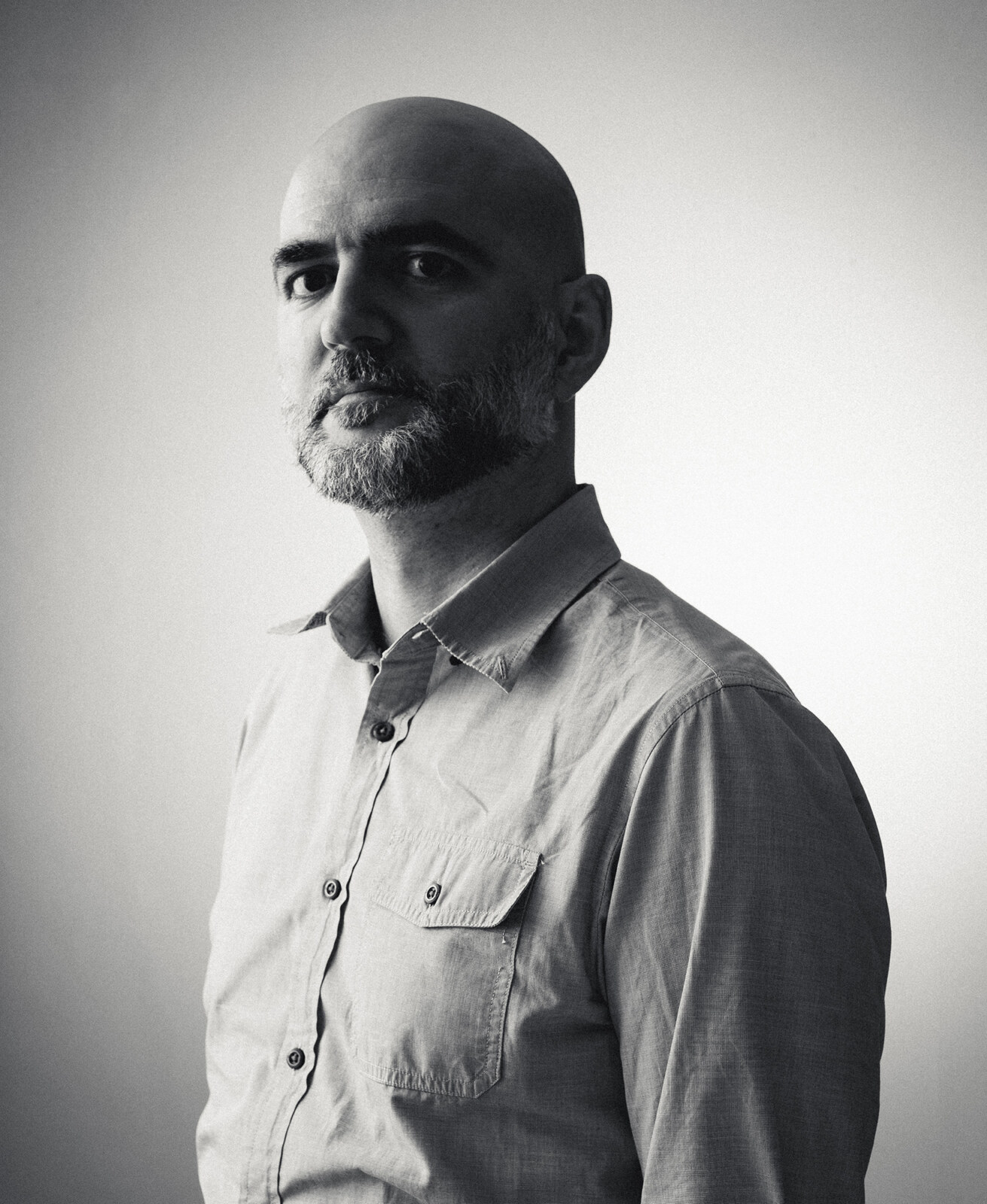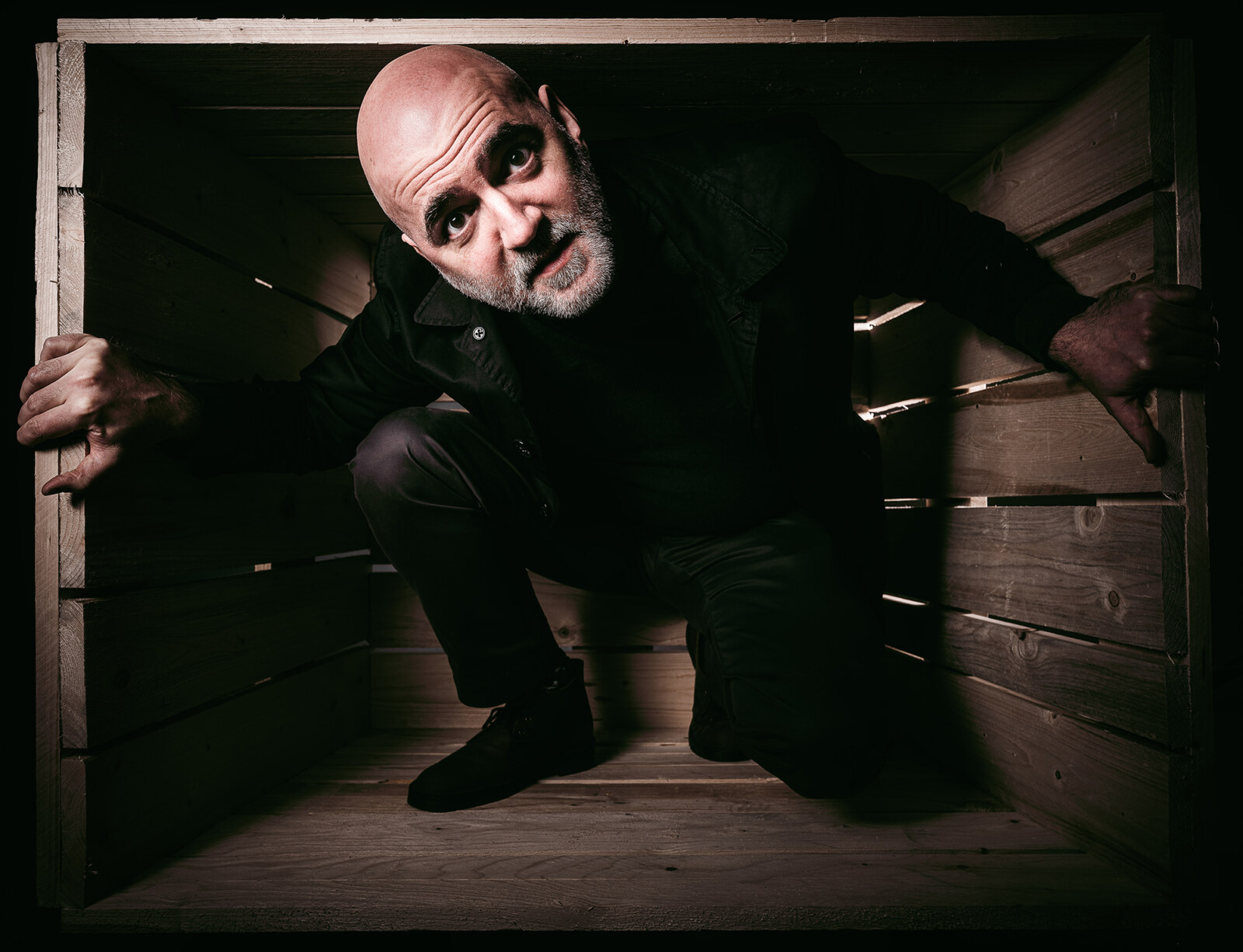‘Nomads On Hold’ by Gregario | “Minimalist Piano Pieces With Sparse Electronics”
Hailing from Luxembourg, David André aka Gregario will release his second EP titled ‘Nomads On Hold’ on June 25 2021. Today we are premiering this beautiful recording.
This sonic document establishes Gregario as a compositional force with a firm grasp on the performance aspect of the project. While the piano remaining central to the narrative, the interplay with the drums sets the table for exciting aural possibilities.
Drawing from years of experience within the Luxemburgish DIY music scene and stints in various acclaimed post rock, indie and electronica outfits, David André has left his elaborate equipment for piano-based compositions that manage to feel subdued and urgent at the same time. This shows a deliberate move away from the maximalism that characterized the sound of his previous band, Mount Stealth, towards a very stripped down approach. To evoke moods and atmospheres through skeletal melodic motives becomes here the leitmotiv. In order to increase dynamic shifts, drum parts were added to the sparse arrangements by Paul Fox, one of the most sought-after drummers of the Benelux jazz scene, who brings his finesse.
‘Nomads On Hold’ establishes Gregario as a compositional force with a firm grasp on the performance aspect of the project. While his signature instrument remains central to the
narrative of last year’s companion piece, the interplay with the drums sets the table for exciting aural possibilities.
“A thirst for discovery, a renewed excitement, and a challenge”
You’ve been part of the DIY music scene for quite some time now. Tell us about it.
David André: First of all, DIY is more of a necessity due to financial constraints than a natural choice. When you start a new project, you have to do almost everything by yourself: create networks, deal with many protagonists, devote time to the more thankless but nonetheless necessary activities of the musical practice like the promotion, finding concerts, write press releases, etc. It is definitely time-consuming, and the return on investment is highly hazardous. Moreover, you have to be convinced of what you are doing. But in this scene, despite very heterogeneous musical backgrounds and socio-cultural profiles, it is precisely this conviction that brings us together, I believe.
On a more personal note, let me mention some key moments of my journey. It all started with Balboa around 2003. We were doing post rock under the (very) strong influence of Mogwai, and we released the album ‘Scale In Feet’ on the German micro-label Musenhain Recordings, which no longer exists. I played bass and guitar there. After Balboa, I found myself doing very radio-friendly indie-pop with Metro between 2005 and 2009. This led to an eponymous album and an EP, with some local success. There, I took over bass, guitar, and some synth to the end of my tenure in Metro. Afterwards, I embarked on the Mount Stealth adventure, which started in 2010 and ended three years ago. We produced 2 EP’s and an album, all released on the French label Chez Kito Kat Records. Mount Stealth’s approach was a kind of experimental rock with math rock and cinematic leanings, to put it shortly.
What led you to make a transformation to piano-based compositions?
It seems that it was a slow and evolutive process since I started playing synth parts in my previous bands. The fact of modelling the songs on Ableton using midi tracks must also have facilitated this development. Anyway, I ended up with sketches of songs that worked really well on the piano. It kind of launched a creative typhoon; I completed these drafts pretty quickly, the first, by the way, on the day my daughter was born. I got caught in this game, and the inspiration was there. Beyond these first compositions, I also started to rearrange old, more electronic pieces in this new way.
On the other hand, I liked the idea of composing on an instrument of which I still do not master the ins and outs. It allowed me to renew my musical vocabulary and get out of the compositional reflexes and routines that can come up on your “main instruments”, in my case, guitar or bass. However, I must confess that there is still a thirst for discovery, a renewed excitement, and a challenge.
Are you deliberately moving into minimalism?
Yes, I definitely wanted to try my hand at another approach. With Mount Stealth, my previous band, we tended to pile up layers and ideas within a song. I wanted to try something else like leaving some space, playing over and with simple, repetitive patterns. And there, the idea of making refined pieces began to obsess me.

Tell us about the additionally added drum parts by Paul Fox, one of the most sought-after drummers of the Benelux jazz scene.
The collaboration happened most naturally. But we didn’t know each other before. When preparing my first EP, ‘Whistleblowers’, I was looking for a drummer to accentuate the dynamics of the songs. I got his phone number from a mutual acquaintance and took the plunge. Soon afterwards, I sent him my models with programmed drum parts.
Obviously, as I am not a drummer myself, Paul told me that some of those grooves were impossible to play, and this reflection marked me a lot in my approach to beat-making. From there, we organized rehearsals to arrange the songs for the recording of ‘Whistleblowers’. Confidence helping and mutual understanding accentuated by concerts, this way of doing things was repeated to record ‘Nomads On Hold’, with even more efficiency, I think. All the songs have therefore gained in fluidity, dynamism and spontaneity thanks to Paul’s contribution.
“What has changed are the goals I set for myself in terms of composition”
Did your approach to music-making completely change? What’s the typical creative process for you these days?
No, not really, actually. What has changed are the goals I set for myself in terms of composition. I’ve been working with a DAW for over a dozen years, Ableton, to put it mildly. My models, my outlines of ideas, everything can be found on my laptop. This software allows me to compose, see what works or not, and try things that would be unthinkable in the more traditional process happening in a classical rehearsal room, and record ideas or even songs at an already quite advanced stage.
As for the creative process itself, it all starts with the initial idea; it could be a riff, a melodic motif, a chord sequence or even a beat. Once it’s in the box, there comes the tweaking phase, where I grind it by removing or adding elements until I’m satisfied. It goes through countless plays and tries, too. It can be seamless or painful; it depends. But blackout can happen at any time. And there, you have to know when to stop and take a step back. Take a break or even move on to another unfinished piece.
What track do you like the most?
It’s a difficult question. Because I love all my songs for different reasons. And choosing means eliminating. But I’ll say it’s ‘Volganic’ because it took me a long time to finish the piece, and the process was very unusual. I had the outro before everything else in the song, and so the composition was pretty much done upside down. I really like the rather dark and very cinematographic atmosphere that emerges from it. And there is also Paul’s contribution which shows the full extent of his talent, going from restraint drumming to a very elegant swing.

What would you say is the main difference in being a solo artist?
On the positive side, there is no one to contradict me. On the negative, read the previous sentence. Kidding aside, you have to manage and organize everything, even the shared tasks between the group members in my past experiences. Still, you may lack a certain distance or even another opinion on a piece’s (ir-)relevance or even of a song. But the lack of consensus or compromise in the creative process of a solo artist gives you a feeling of increased freedom.
Klemen Breznikar
Gregario Facebook / Instagram / YouTube / Bandcamp




